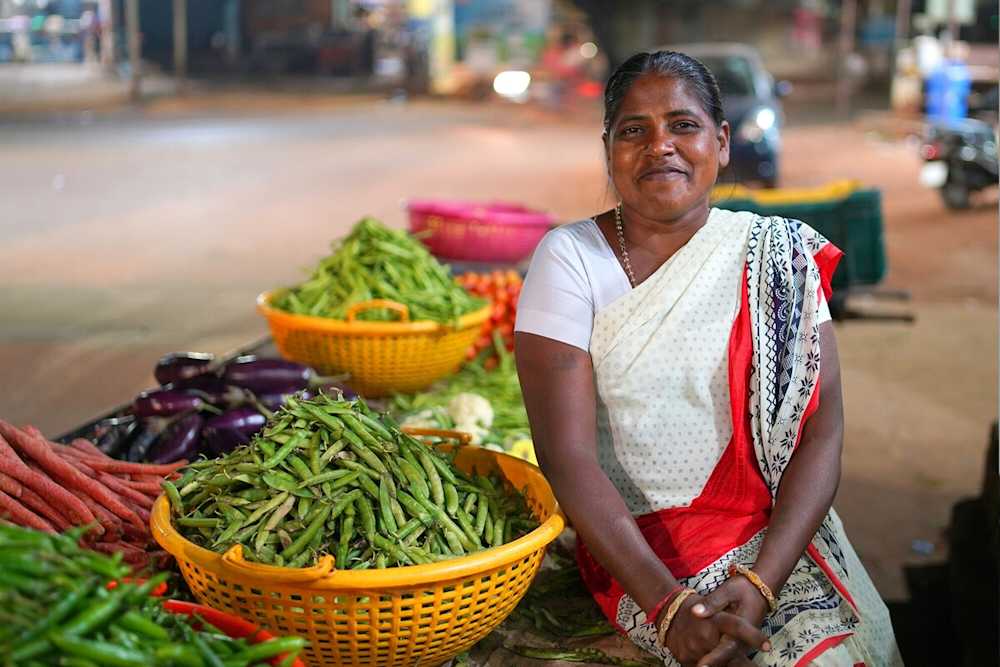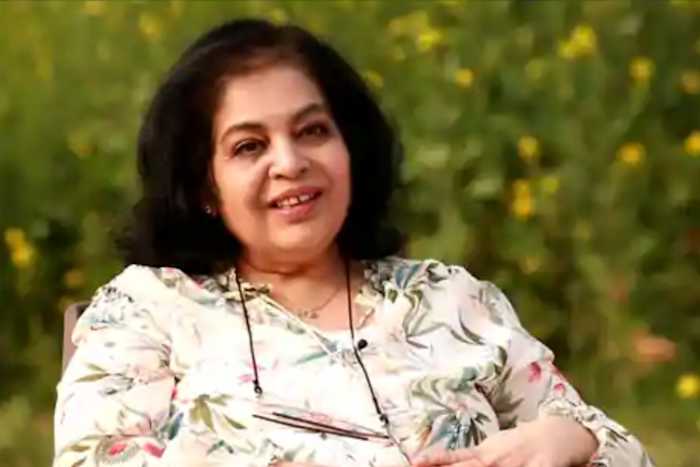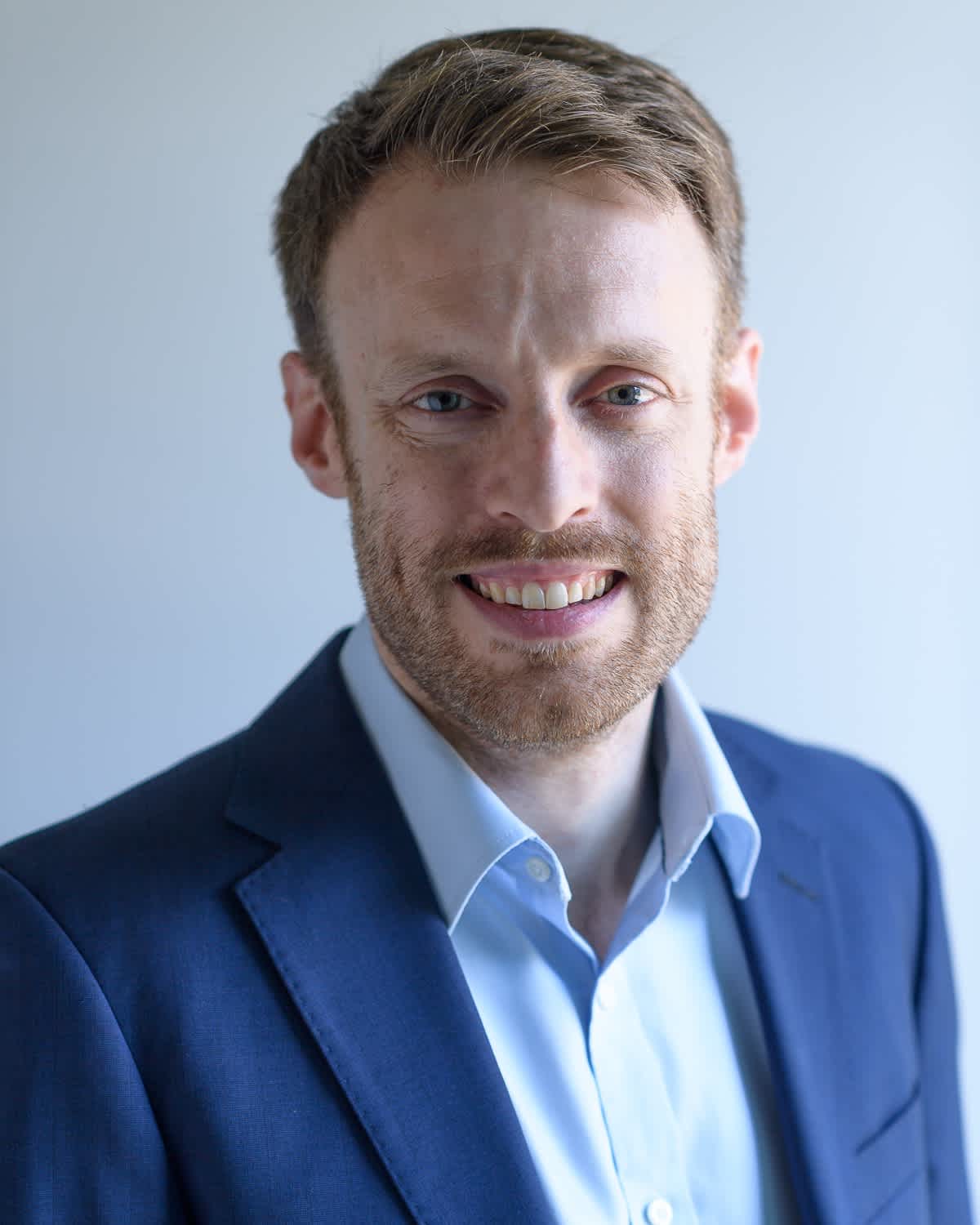IWD spotlight: an interview with Anju Srivastava, founder of Wingreens Farms

Paul: What an honor to meet you, Anju. Perhaps you could start by introducing yourself and explaining who Wingreens are and the history of the name.
Anju: We started Wingreens in 2008 first with the WIN – Women’s Initiative Network. This was important for us because after spending almost 25 years in advertising, and after my husband and I had moved to the US for awhile, we wanted to come back and do something meaningful. We wanted to give back to society in India what we had gained through our years in work. So we looked to the farming sector, as 60% of India is agrarian, and to women. Because although women are considered the weaker section of society here, they are actually a very powerful resource.

“Women are a powerful resource. They can actually turn around the destiny of our country if we just unleash this force.”
Anju Srivastava
WIN stood for the Women’s Initiative Network and Green stood for the agricultural sector so that is why we are called Wingreens.
Paul: Can you expand on the issues faced by farmers in India? And also how that affects female farmers in India?
Anju: In the north of India, where we work, most of the hard work on the farms is done by women. Men mostly run the tractors and irrigation systems, but all the sewing, harvesting and weaving is done by women. The women are also looking after the families and doing household chores, like gathering firewood. Unfortunately, they are not skilled for more than farming. One of the problems is that the agricultural sector in India is not connected to any kind of processing. They are only linked to markets. And these markets have fixed prices, and the farmers are at the mercy of those markets. And they have to sell the produce for whatever price the government sets. It’s not enough for them to live by. That determines their destinies.
Also, the land in India is very fragmented. They don’t own large tracts of land, so that whatever yield that they get and whatever price they get for the yield is very little because they own very little land. So if you multiply the yield of one or two acres it comes to nothing. It is not enough for a family to live by.
So we thought that if women could be involved in processing and be skilled in processing, that would help the farmers. They would not have to sell when the price is at its lowest. They would be able to value add to their produce and therefore generate more money for themselves. That is why we began, so that would be giving women skills in processing and so that more money could go into the families.
So we set up a new system. We decided to rent the land from the farmer for the minimum price that he would earn from his yield and a little more than that actually. Then we decided to give him employment as the farm manager, because he needs to coordinate the irrigation systems etc. Apart from that, we hired women who work on the farm so that they would get a wage. So it was no longer family women working for free, but rather women getting wages.
Then we set up complete processes and gave the women skills to work in processing and add value to the operation as a whole.
This gave confidence to the farmers and then later became a model which could either be run by NGOs, well meaning corporates or even the farmers themselves. So that was the model we started with Wingreens.
Women were of particular interest to us because there were a few cultural issues in some locations in India. Mainly that money that often goes into the hands of men, which they often use for gambling and alcohol. All of the money does not go back home to the families, and therefore the children remain less educated than if there was an improvement in the quality of life. Because most of the money is spent before it comes home. But money that is put into the hands of women, almost all of it goes home. And it leads to better quality of life and education for the children and the family as a whole. This was a very important reason for us to work with women, specifically, as well.
Paul: What kind of training do you provide to women? What technical skills do they pick up?
Anju: We first started our model with a few women in a village near the farm. These women were almost completely uneducated, meaning they had not gone beyond class two or three in school. We wanted to understand if they were interested, if they wished to do it and how long it would take us really to train them. The other point is that these women had to work within their families. They were not allowed to step out for any other work, so they had not stepped out of their homes. They hadn’t stepped out and developed their own free will.
It took us awhile to convince their families to allow them to come and learn from us. We wanted to teach them food processing and food safety and food hygiene and see how they related to that. And you know, they came out with great difficulty, because the mother-in-laws and the husbands said they didn’t know if it was safe. So we said let them come for two hours a day. And we paid them to learn. Not much, but we paid them a small amount to learn. And in cases where the mother-in-law complained that she would be left with all the housework, we then invited the mother-in-laws to come as well. And they managed to get the housework done on time, somehow. And then they said, what will we do about the kids. So we spoke to an NGO, and the NGO started a school for the kids so the mothers would come in and bring the children to school. We started with 2 hours a day and then 4 hours a day and then 6 hours a day and then 8 hours a day. And that is how it worked.
What is fascinating is that these women, who had never stepped out of their homes or had a will of their own, had now suddenly, over the course of a couple of years, travelled the world of cuisines. They were making basil pesto from Italy, hummus from the Middle-East, salsa from Mexico. It was amazing. We were making international products and everyone used to ask us, who is your chef, and I would tell them, we don’t have a chef, it is our women.
“Our women have never stepped out of the homes, but they have travelled the world of cuisine.”
They enthralled the entire country with this international cuisine. It was fascinating, the dedication and devotion which with they learnt and studied food hygiene. We hardly get any complaints. We are covered by all the same laws as all the big companies and industries. And we manage. We have the same if not better standards. And it is all thanks to the women.
What we have discovered is that the women in India are not, you know, sort of a weaker section. They are a powerful resource. They can actually turn around the destiny of our country if we just unleash this force. Skill them, train them AND give them jobs. There has been a lot of training done without giving them employment. Which is absolutely of no use.
Paul: What has been the impact of Covid on rural India and on your operations?
Anju: Great question. The impact of Covid has hit urban India more than rural India. In India, Covid is more a disease of the rich. The poor people, they don’t have the luxury of being afraid of Covid. They have to go on. They earn and eat day to day. So the reality is that India went through a lockdown on the 24th of March 2020, and by the 30th of March, our ladies were back to work. And even though that area was deemed a containment zone by the government, meaning that the authorities were stricter in that area than others, the women went to the police station and convinced the policemen that this area is so big that they cannot declare the whole area a containment zone and they got permission and came back to work. They were the first people to come back to work. They came back before and of our executive staff and managers. And because they came back, the rest of them had to come back and start work again, too. And we’ve had no instances of Covid among our women.
“In India, Covid is more a disease of the rich. The poor people, they don’t have the luxury of being afraid of Covid. They have to go on.”
At the farms, there was even less of an impact. But because of the stores being shut down and the modern train shutting down, there was a slow down in business for a few months. So we had to slow down production because business slowed down, but over all we have been very resilient.
Paul: Looking beyond Covid – how do you view the long term outlook for the healthy and sustainable products that you are producing in India?
Anju: That is interesting. People are becoming more health conscious. And you know, they have more time to think about what they eat. Working from home has brought that in. The outlook is very very good, however health is not going to be a fanatical trend. A bigger trend, and where our products come in along with health, is convenience. Now that they are cooking on their own, they want food that is easier to cook. Urban India worked on a system of helpers and helpers completely disappeared during Covid. So everyone is cooking their own meals. So our products are filling two market segments. One is food that used to be cooked at home by the helpers. And the second segment that we will get a share of the is the home delivery segment, because people are afraid to order in.
So our products, dips and culinary sauces that are healthier and much tastier, are giving people restaurant quality food at home. There is a latent chef in people that has suddenly come out during Covid…along with the fitness freak.
Paul: Yes, we all have a hidden chef and fitness enthusiast in us…in my case, those are both very well hidden. But anyway, Wingreens has been an extraordinary success story. So as a female co-founder of a successful brand, was being a woman ever an obstacle for you? And what lessons and advice would you like to share with other female entrepreneurs?
Anju: I actually feel it is an advantage to be a female founder. Because in India, particularly, women are always multi-tasking. It is very different from what I see of men. We do many things together and we have our own interesting ways of connecting them and getting the best out of everything we do. We don’t leave things to do tomorrow.
There is also something about being a mother, I guess, that matters. You are just very clear about your role. If your company is like your child, you will do whatever it takes to take it far and make it succeed. And every single person in the company makes up that child. And so the attitude is completely different.
You can look outside and say people behave in a certain way or they don’t take you seriously. I think that is a waste of time. You have to achieve what you wish to achieve. You have to go where you wish to go and it really doesn’t matter what people say or think.
I don’t think men have less obstacles, They have different obstacles. And women, they have different obstacles, not more obstacles. If you are clear about your goals and directions, and I mean I am, I can’t say that there have been any specific obstacles that have held me up because I am a woman.
“I don’t see the obstacles, They don’t matter. What matters is where I want to go, where I want my country to go and where I want my people to go.”

Paul Hailey
Paul Hailey is Head of Sustainability and Impact at responsAbility Investments and the author of various publications and articles. Previous roles at the company include Senior Research Analyst for the financial sector. He has an MBA from École des Hautes Études Commerciales de Paris (HEC Paris), where he is also a lecturer, and a B.A. (Hons) from Pembroke College, University of Cambridge.